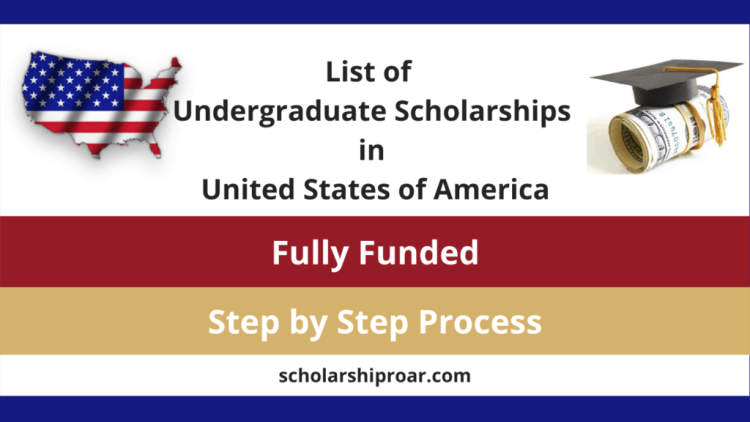Pursing a quality education in the United States can be a challenging endeavor, but there are many options available to help make studying in the US easier and more affordable. Private scholarships are some of the best ways to increase your chances of getting the education you want.
When you explore your private scholarship options, it’s important to understand the key criteria for eligibility, the types of scholarships available, and any necessary application requirements. In order to make sure you have the best chance of getting a scholarship, you should also consider any additional resources to help your search.
How to Find US Scholarship Opportunities
Studying in the US can be expensive, but scholarships can help reduce the burden. Fortunately, there are several avenues to explore to find private scholarships available for US study. In this article, we will explore how to find US scholarship opportunities and make the most of searching for financial aid.
Identify Your Eligibility
Before you begin your search for scholarships, it is important to determine your eligibility. Different scholarships will have different requirements, so take time to peruse the criteria to find ones that you may qualify for. Some may require that you maintain a certain grade point average (GPA), have been involved in certain extracurricular activities, or have completed a certain number of hours of community service. It is best to cast a wide net when looking for scholarships, but having an idea of your eligibility can help you narrow down your search.
Explore Multiple Sources
Once you know your eligibility criteria, start researching scholarships through both private and public sources. Here are a few of the sources that you can try:
- Colleges and universities: Every college or university typically offers its own scholarship and grants available to undergraduate or graduate students. Check the college website for information.
- State and federal government websites: State governments often provide assistance for residents interested in studying at a US university. In addition, the Federal Government has grants and scholarships available to US citizens and permanent residents.
- Corporations and foundations: Some organizations or private foundations also have scholarships and grants for US studies. Search for relevant keywords and search for opportunities that may be available.
- Scholarship search engines: There are several websites dedicated to scholarship searching, such as FastWeb and Scholarship. Search for the keyword “US study” to get results based on your criteria.
Use Local Resources
Additionally, it is recommended to research scholarships available in your local community. These may be more specific in scope, but are still a great resource. Talk to your high school guidance counselor, local religious centers, or charitable organizations, so you can gain insights on the scholarship options available in your area. You can also talk to members of your family or alumni associations connected to various colleges and universities in the US to see if they know of any scholarship opportunities.
Keep Track and Be Prepared
Once you have identified scholarship opportunities that you are eligible for, keep track of deadlines and requirements in order to remain organized. Give yourself plenty of time to read through the application instructions and prepare all the necessary documents. Also, make sure to get all your documents notarized or attest them at the US embassy. Finally, stay in contact with the scholarship providers after you have submitted your applications.
Exploring private scholarships for US study can be a challenge, but it is worth the effort. Taking the time to identify your eligibility, explore multiple sources, and use local resources will help you find the best scholarship opportunities that are available.
What are Private Scholarships?

Private scholarships are educational scholarships that are funded by private individuals or organizations, rather than by public or government sources. Private scholarships are typically one-time awards or grants, made without any obligation to repay the amount awarded. These educational grants and awards are direct grants for specific use, such as for tuition, room and board, textbooks, school fees, supplies, or other educational costs, and may come in the form of a grant, loan, or scholarship.
Private scholarships can come from a variety of sources, including businesses, non-profit organizations, religious organizations, and universities. These scholarships are often awarded as part of an organization’s philanthropic mission, or to memorialize the legacy of a loved one or celebrity. Private scholarships are most often awarded based on merit, such as the top-ranked student in a program or with the best grades.
In addition to these, private scholarships can also be offered to financially-needy students. These scholarships are often scholarships or grants focused on providing access to education for those who may otherwise struggle to afford it. Private scholarships are often awarded based on demonstrated financial need.
Examining the Different Eligibility Requirements for Scholarships
When considering pursuing higher education in the US, most people are aware of the potential costs associated with international tuition fees. Scholarships are an excellent way of reducing the burden and are available to many potential international students. To determine eligibility, potential international students should carefully consider the various scholarship requirements.
Private scholarships can vary greatly in terms of eligibility. Generally, applicants must meet certain criteria in order to be approved for a scholarship. Here are some of the requirements to consider for private scholarships:
- Age – most scholarships are available only to applicants of a certain age.
- Certain Levels of Education – scholarships are often available only to those holding a certain level of education.
- GPA – some scholarships are based on a certain GPA score.
- Financial Need – some scholarships require applicants to demonstrate financial need.
- Nationality/Residency – many scholarships are only available to residents of certain countries.
- Major or Field of Study – many scholarships require applicants to have a certain major or field of study.
It is important to thoroughly research and understand the eligibility requirements of each private scholarship before applying. Being aware of the various criteria and expectations will pay dividends when it comes to receiving an award. In addition to researching the eligibility requirements, potential recipients should also be familiar with the amount of money offered by the various scholarships and the deadlines for submitting applications.
Conclusion
Studying in the US can be expensive, but you can potentially lessen your financial burdens by exploring private scholarship opportunities. Make sure you research and apply for all available scholarships to increase your chances of being approved. Different scholarship providers have different requirements, so make sure you are eligible to apply and make sure the documentation is complete and up-to-date before submitting it. In addition, reach out to your networks to find additional scholarship opportunities that might not be publicized widely.
Making yourself a competitive and well-rounded applicant is also a key factor in securing scholarships. Make sure to invest your time in pursuing relevant extracurricular activities, community service, working experience, and academics to make yourself the most attractive option for a scholarship provider. Start your research and application process early to increase your chances.




